Filter by
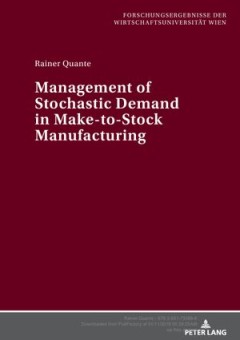
Management of Stochastic Demand in Make-to-Stock Manufacturing
Up to now, demand fulfillment in make-to-stock manufacturing is usually handled by advanced planning systems. Orders are fulfilled on the basis of simple rules or deterministic planning approaches not taking into account demand fluctuations. The consideration of different customer classes as it is often done today requires more sophisticated approaches explicitly considering stochastic influenc…
- Edition
- -
- ISBN/ISSN
- 9783631594094
- Collation
- -
- Series Title
- -
- Call Number
- 650
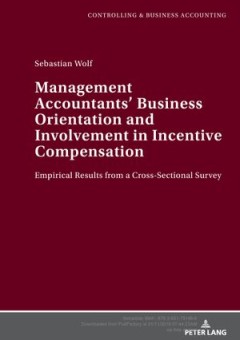
Management Accountants’ Business Orientation and Involvement in Incentive C…
- Edition
- -
- ISBN/ISSN
- 9783631606872
- Collation
- -
- Series Title
- -
- Call Number
- 650
- Edition
- -
- ISBN/ISSN
- 9783631606872
- Collation
- -
- Series Title
- -
- Call Number
- 650
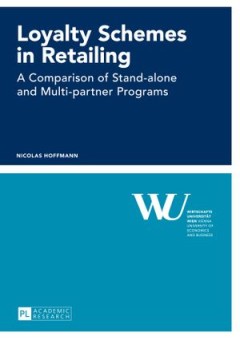
Loyalty Schemes in Retailing : A Comparison of Stand-alone and Multi-partner …
To expand existing literature on loyalty schemes, the impact of stand-alone vs. multi-partner programs on customer loyalty was evaluated. In addition, the effects of store satisfaction, membership in competing programs, as well as various shopper characteristics were tested. Therefore, interviews were conducted with loyalty executives and a survey was carried out with 1,150 German customers of …
- Edition
- -
- ISBN/ISSN
- 9783653035155
- Collation
- -
- Series Title
- -
- Call Number
- 650
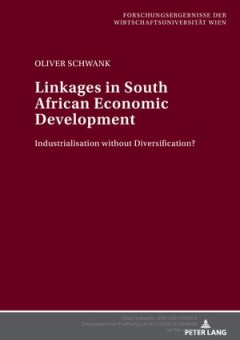
Linkages in South African Economic Development
How can South Africa diversify its industrial sector so that it is less dependent on mineral exports, increases labour absorption and reduces unemployment? This book sheds more light on the structure of South Africa’s economy, its industrial sector and inter-sectoral linkages by simulating an economic geography model of the vertical linkages type, by testing linkage strength econometrically a…
- Edition
- -
- ISBN/ISSN
- 9783631587010
- Collation
- -
- Series Title
- -
- Call Number
- 650
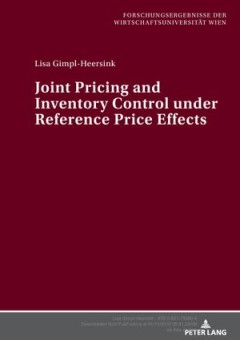
Joint Pricing and Inventory Control under Reference Price Effects
In this work, we address the problem of simultaneously determining a pricing and inventory replenishment strategy under reference price effects. This reference price effect models the fact that consumers not only react sensitively to the current price, but also to deviations from a reference price formed on the basis of past purchases. Immediate effects of price reductions on profits have to be…
- Edition
- -
- ISBN/ISSN
- 9783631589137
- Collation
- -
- Series Title
- -
- Call Number
- 650
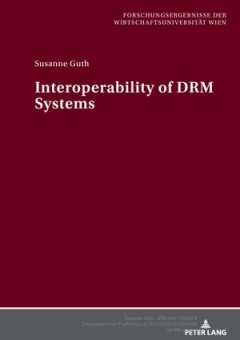
Interoperability of DRM Systems
The study deals with the cutting-edge subject of electronic contracts which have the potential to automatically process and control the access rights for (electronic) goods. It shows the design and the implementation of a rights expression exchange framework. The framework allows DRM systems to exchange electronic contracts, formulated in a standardized rights expression language, and thus prov…
- Edition
- -
- ISBN/ISSN
- 9783631538456
- Collation
- -
- Series Title
- -
- Call Number
- 650
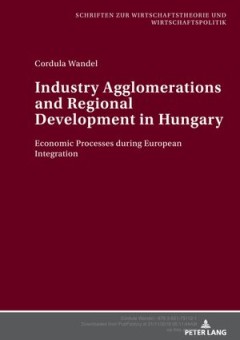
Industry Agglomerations and Regional Development in Hungary
In context with the Eastern enlargement of the European Union, this research deals with the effects of pre- and post-enlargement integration policies on industry concentration and regional development in Hungary. Economic processes are analysed empirically and by means of regression analyses with a spatial perspective and in the framework of the new economic geography over a time span of almost…
- Edition
- -
- ISBN/ISSN
- 9783631600917
- Collation
- -
- Series Title
- -
- Call Number
- 650
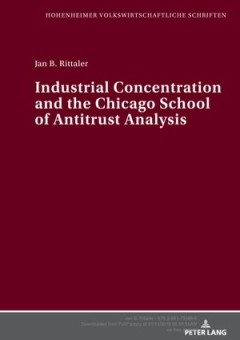
Industrial Concentration and the Chicago School of Antitrust Analysis
After roughly 15 years of merger control application in the Federal Republic of Germany a reassessment of the significance of this instrument of antitrust policy seems necessary. This is particularly so in view of the reorientation of merger control policy in the United States which has been - in its original version - the model for the German merger control system. Concerning merger contr…
- Edition
- -
- ISBN/ISSN
- 9783631408742
- Collation
- -
- Series Title
- -
- Call Number
- 650
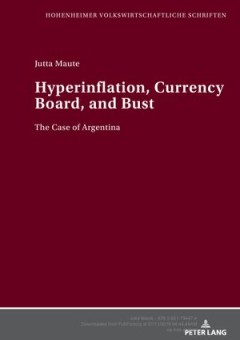
Hyperinflation, Currency Board, and Bust
This book focuses on «Convertibilidad», the latest Argentine experience of exchange rate based stabilisation, and aims at isolating the main causes for its tragic collapse in 2001-2002. The characteristics of Argentina’s high and hyperinflation during the 1980s are analysed, and the theory of currency boards is expounded. The stabilisation tool, an institutionally highly credible currency b…
- Edition
- -
- ISBN/ISSN
- 9783631556085
- Collation
- -
- Series Title
- -
- Call Number
- 650
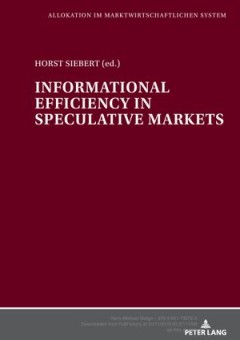
Hans-Michael Geiger nformational Efficiency in Speculative Markets- A Theoret…
The purpose of this work is to provide a critical presentation and some extensions of two perspectives of informational efficiency: On the one hand the neoclassical perspective or «arithmomorphic approach» explains efficiency in terms of a concept mainly based on an explicit economic theory. On the other hand, in the Austrian perspective or «causal genetic approach» attention is drawn to th…
- Edition
- -
- ISBN/ISSN
- 9783631408032
- Collation
- -
- Series Title
- -
- Call Number
- 650
 Computer Science, Information & General Works
Computer Science, Information & General Works  Philosophy & Psychology
Philosophy & Psychology  Religion
Religion  Social Sciences
Social Sciences  Language
Language  Pure Science
Pure Science  Applied Sciences
Applied Sciences  Art & Recreation
Art & Recreation  Literature
Literature  History & Geography
History & Geography